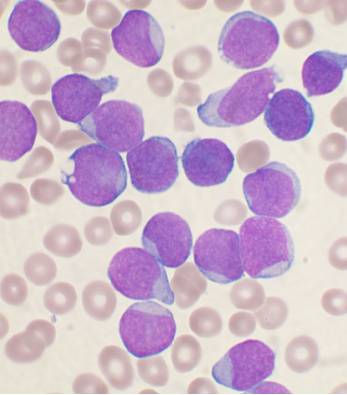Leukemia, Acute Lymphoblastic, Susceptibility To, 2

For a discussion of genetic heterogeneity of susceptibility to acute lymphoblastic leukemia, see ALL1 (613065).
MappingIn a genomewide association study of 317 patient with ALL and 17,958 controls, Trevino et al. (2009) found an association between ALL and 3 SNPs on chromosome 7p12.2. These were in linkage disequilibrium and located in the IKZF1 gene (603023) (rs11978267, p = 8.8 x 10(-11)) and the DDC gene (107930) (rs2167364, p = 2.8 x 10(-6) and rs2242041, p = 9.9 x 10(-7)). Trevino et al. (2009) concluded that germline variants can affect susceptibility to, and characteristics of, ALL and specific ALL subtypes.
In a genomewide association study of 2 case-control series, totaling 907 ALL cases and 2,398 controls, Papaemmanuil et al. (2009) found a significant association between ALL and a SNP at chromosome 7p12.2 in the IKZF1 gene (rs4132601, OR of 1.69, p = 1.20 x 10(-19)). The association was also highly significant when confined to B-cell ALL (OR of 1.73, p = 9.31 x 10(-20)). In vitro studies showed that IKZF1 mRNA expression was significantly associated with genotype in a dose-dependent fashion, with lower expression being associated with the C risk allele. The authors noted that Ikaros proteins are master regulators of lymphocyte development.
By genotyping 1,384 cases of precursor B-cell childhood ALL and 1,877 controls from Germany and the United Kingdom, Prasad et al. (2010) found a significant association between IKZF1 SNP rs4132601 and ALL (OR of 1.69, p = 7.51 x 10(-22)). This finding replicated the susceptibility locus for ALL at chromosome 7p12.2 previously reported by Trevino et al. (2009) and Papaemmanuil et al. (2009).
Molecular GeneticsSomatic Mutations
The Philadelphia chromosome, a chromosomal abnormality that encodes BCR-ABL1 (see 151410, 189980), is the defining lesion of chronic myelogenous leukemia (CML; 608232) and a subset of acute lymphoblastic leukemia (ALL). To define oncogenic lesions that cooperate with BCR-ABL1 to induce ALL, Mullighan et al. (2008) performed a genomewide analysis of diagnostic leukemia samples from 304 individuals with ALL, including 43 BCR-ABL1 B-progenitor ALLs and 23 CML cases. IKZF1, encoding the transcription factor Ikaros, was deleted in 83.7% of BCR-ABL1 ALL, but not in chronic phase CML. Deletion of IKZF1 was also identified as an acquired lesion at the time of transformation of CML to ALL (lymphoid blast crisis). The IKZF1 deletions resulted in haploinsufficiency, expression of a dominant-negative Ikaros isoform, or the complete loss of Ikaros expression. Sequencing of IKZF1 deletion breakpoints suggested that aberrant RAG-mediated recombination (see 179615) is responsible for the deletions. Mullighan et al. (2008) concluded that genetic lesions resulting in the loss of Ikaros function are an important event in the development of BCR-ABL1 ALL.
Mullighan et al. (2009) identified deletions involving the IKZF1 gene in leukemic cells of 63 (28.6%) of 221 children with B-cell acute lymphoblastic leukemia. Cells from 20 patients had a deletion of coding exons 3 through 6, resulting in the expression of a dominant-negative form of IKZF1. IKZF1 deletions were associated with an increased risk of relapse and adverse effects in the original cohort and in an independent cohort of 258 patients (p values ranging from less than 0.001 to 0.004).